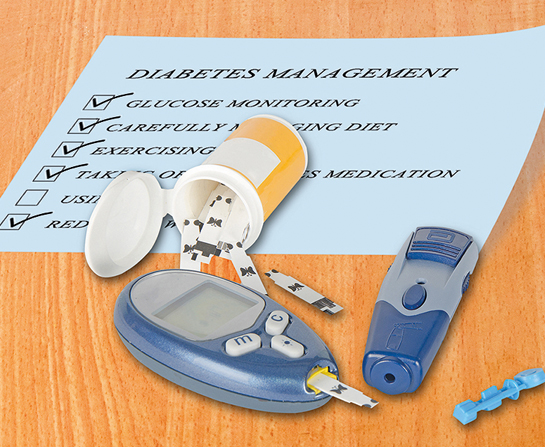The Right Check
April 28, 2022 Return

You may be eating and exercising according to your healthcare team’s recommendations while faithfully taking your medications. But how do you know if you are doing the right thing when it comes to managing your diabetes?
The answer is pretty simple: regularly monitor your blood glucose level and keep a record of your progress.
Self-monitoring
Self-monitoring alerts you to the possibility of whether you are hyperglycaemic or hypoglycaemic after a meal. Knowing the results early will allow you to take quick actions in restoring your blood glucose level to within a healthy range.
Also, self-monitoring allows your healthcare team to measure the progression of your diabetes and adjust your medications accordingly. This is why you should self-monitor even when you show no signs of illness, and keep a record of the results.
Fasting Non-fasting HbA1c | 4.4 – 6.1 mmol/L 4.4 – 8.0 mmol/L < 6.5% |
When should you monitor your blood glucose?
According to the Malaysian Clinical Guidelines on Management of Type 2 Diabetes Mellitus (2009), the following practice is recommended.
| Breakfast | Lunch | Dinner |
|---|---|---|---|
On oral medication only | Check before and after | Check after | Check after |
On insulin | Check before | Check before | Check before and after |
Monitoring by your healthcare team
Your healthcare team monitors the progress of your diabetes management efforts by measuring the following:
- Blood glucose level. Check with your healthcare professional whether you need to fast before they measure your blood glucose level.
- Urine testing. This is to determine whether your kidneys are functioning properly.
- HbA1c. HbA1c refers to the protein in your red blood cells, haemoglobin, which are bonded to glucose to give what we call “glycated haemoglobin”. By determining your HbA1c value (measured in %), your healthcare team will get a good idea of your blood glucose level over the last 2 or 3 months. (This is why you cannot fool your healthcare team by starting to manage your diet only a few weeks before your medical appointment!)
- Blood pressure. This is to gauge whether your cardiovascular system is in good order.
- Blood lipid level. By measuring the amount of cholesterol and triglycerides in your blood, your healthcare team would have a good gauge of your risk of heart disease, which is usually increased in diabetics, especially those with weight problems.
If you like this article, do subscribe here.
